A reader asks:
There has been a clear distinction in recent years in sentiment data where party/political leaning sentiment goes in the opposite direction depending on who the President is. Anecdotally I have noticed in my friend group, family, social media, and even with some financial professionals online that people seem to be actually making decisions with their money strictly based on their politics. I have personally witnessed people say countless times in recent years that they are doing XYZ with their investments not based on market or life events but simply because “they don’t like XYZ President” and “this country is in trouble with this President so I am going all cash and bonds.” It’s almost like the only thing driving these drastic decisions is who the president is and not what the economy is doing or expectations for earnings. Have we come to a point in history where personal investment decisions are going to be made almost entirely on who is President every 4 years?
The sentiment data is quite striking:
When Biden was president, consumer sentiment was low for Republicans and high for Democrats.
When Trump got elected — surprise, surprise — sentiment shot up for Republicans and immediately dropped for Democrats.
The same thing happened when we switched from Obama to Trump in 2016 and from Trump to Biden in 2020.
This same dynamic played out with inflation expectations:
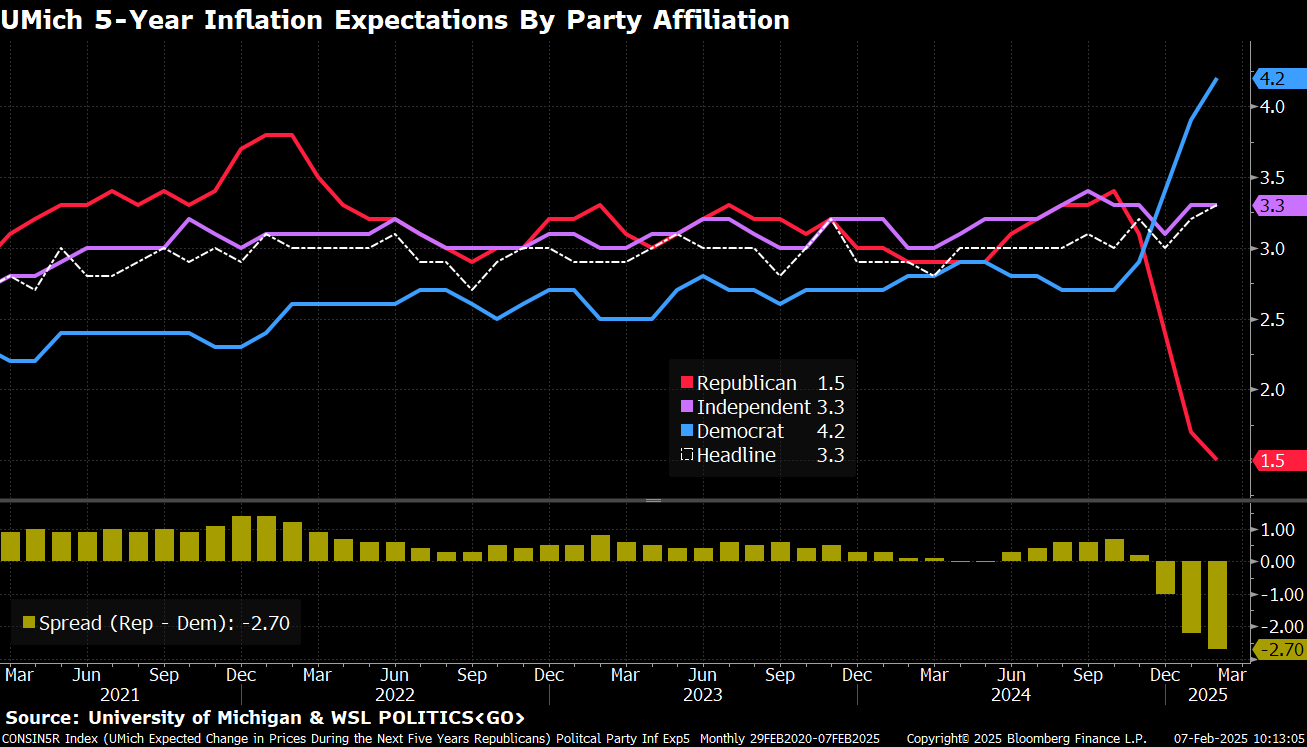
Are these charts depressing? Yes they are. It makes it look like partisans can’t think for themselves.
Does this mean people are actually changing their investment stance based on who the president is?
Not necessarily.
These are surveys. You have to watch what people do not what they say on sentiment surveys.
Are people actually getting out of the stock market or changing their investment posture based on who the president is?
Some people are doing this, sure (see here).
But the sentiment readings change much more than actual investing trends:
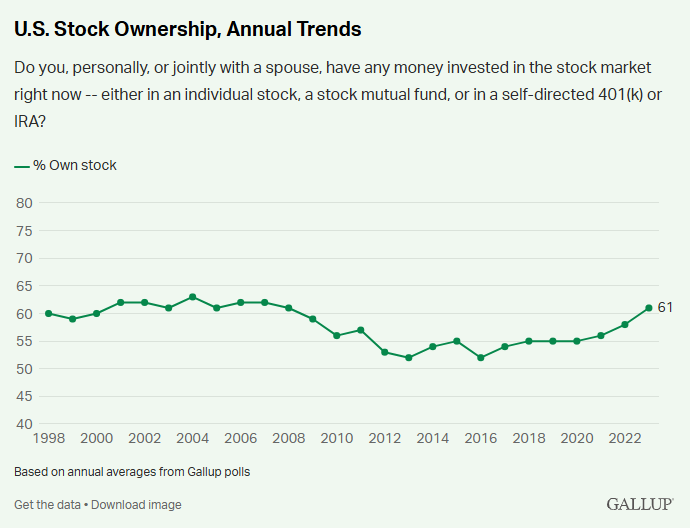
Stock market ownership fell following the Great Financial Crisis because some investors gave up on the stock market following two gigantic crashes and a lost decade. Their loss.
It’s been rising since the mid-2010s through both Republican and Democratic administrations.
Maybe people give up on the stock market from here or this trend continues but my best guess is that would be based more on performance than politics.
Look this year is a good reminder that Presidential policies can have an impact on the market over the short-term. Wall Street was caught offside after Trump’s victory when everyone was proclaiming the boom was on, animal spirits were unleashed and there was no stopping this train.
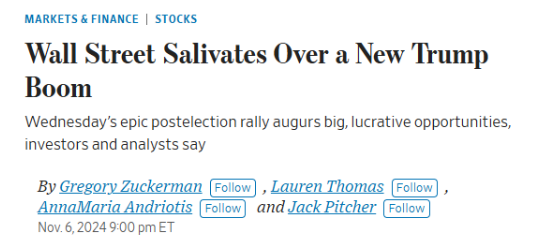
Well, that narrative derailed very quickly:

Pundits are often wrong about what the change in Oval Office means at the outset.
In 2016 everyone was sure markets would crash:
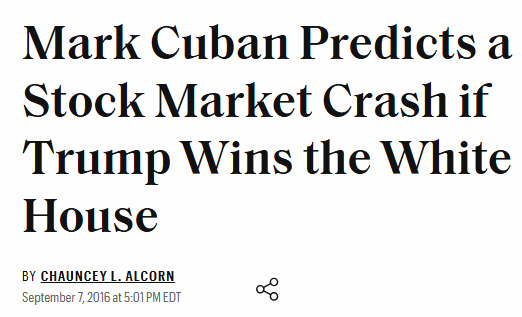
People weren’t all that optimistic about Obama in 2008 either:
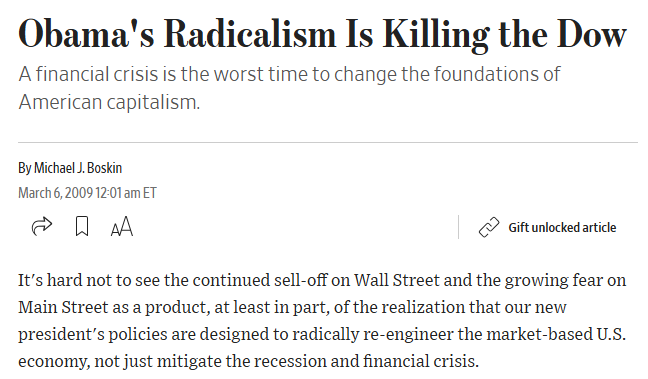
The stock market boomed after both of those elections.
This time around Wall Street thought we were getting deregulation and lower taxes. No one expected Trump would nuke the stock market and potentially the economy with onerous tariffs.
Are people overreacting again now? It’s possible. Time will tell.
I’ll share some more thoughts on tariffs and trade tomorrow.
I discussed this question on this week’s Ask the Compound:
Bill Sweet joined me on the show to answer questions about how TIPS are treated from a tax perspective, what to do with the proceeds from the sale of your house, when you should get an advisor in middle age and how adjustable rate mortgages work.
Further Reading:
When Buy and Hold Dies
